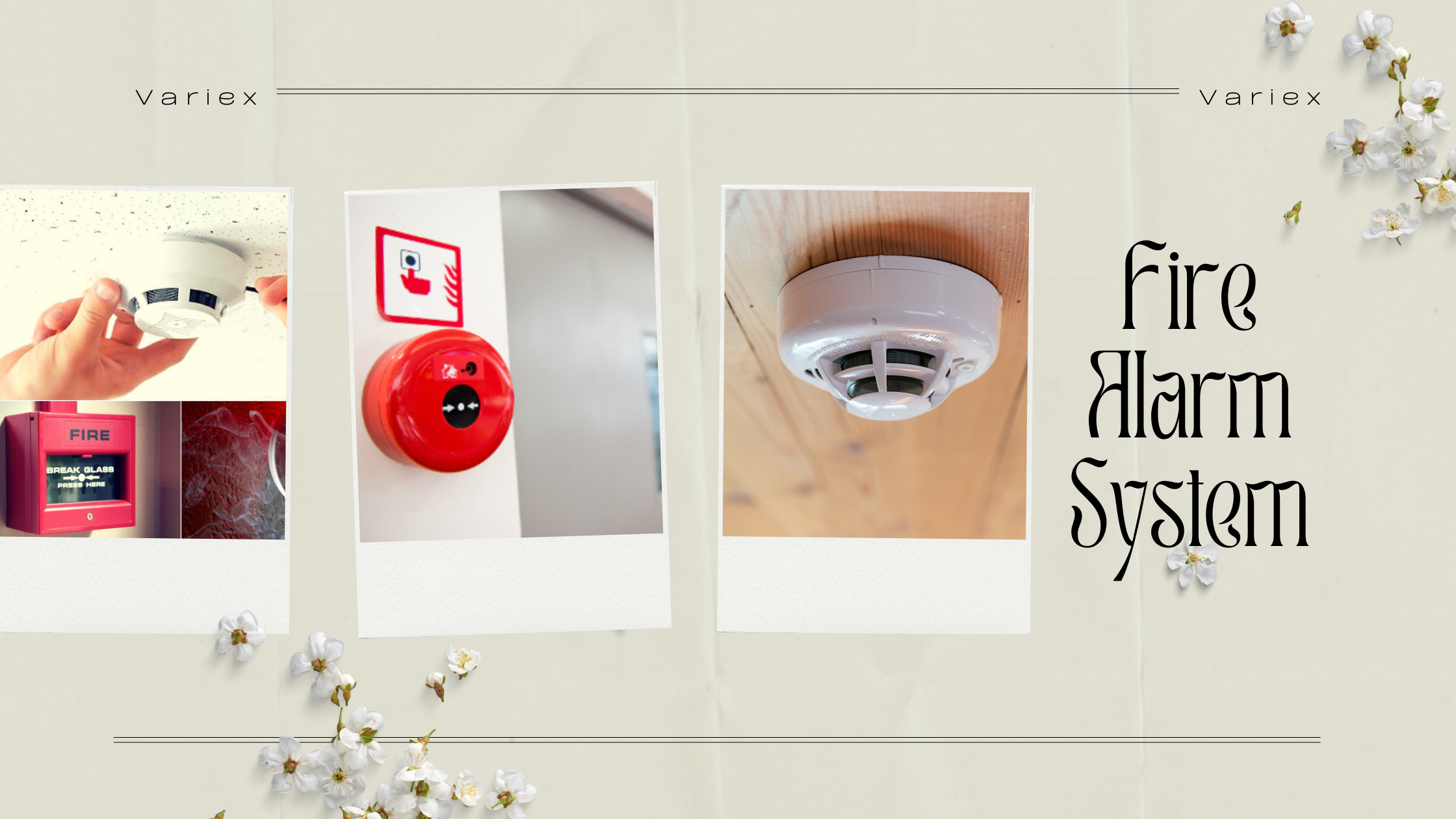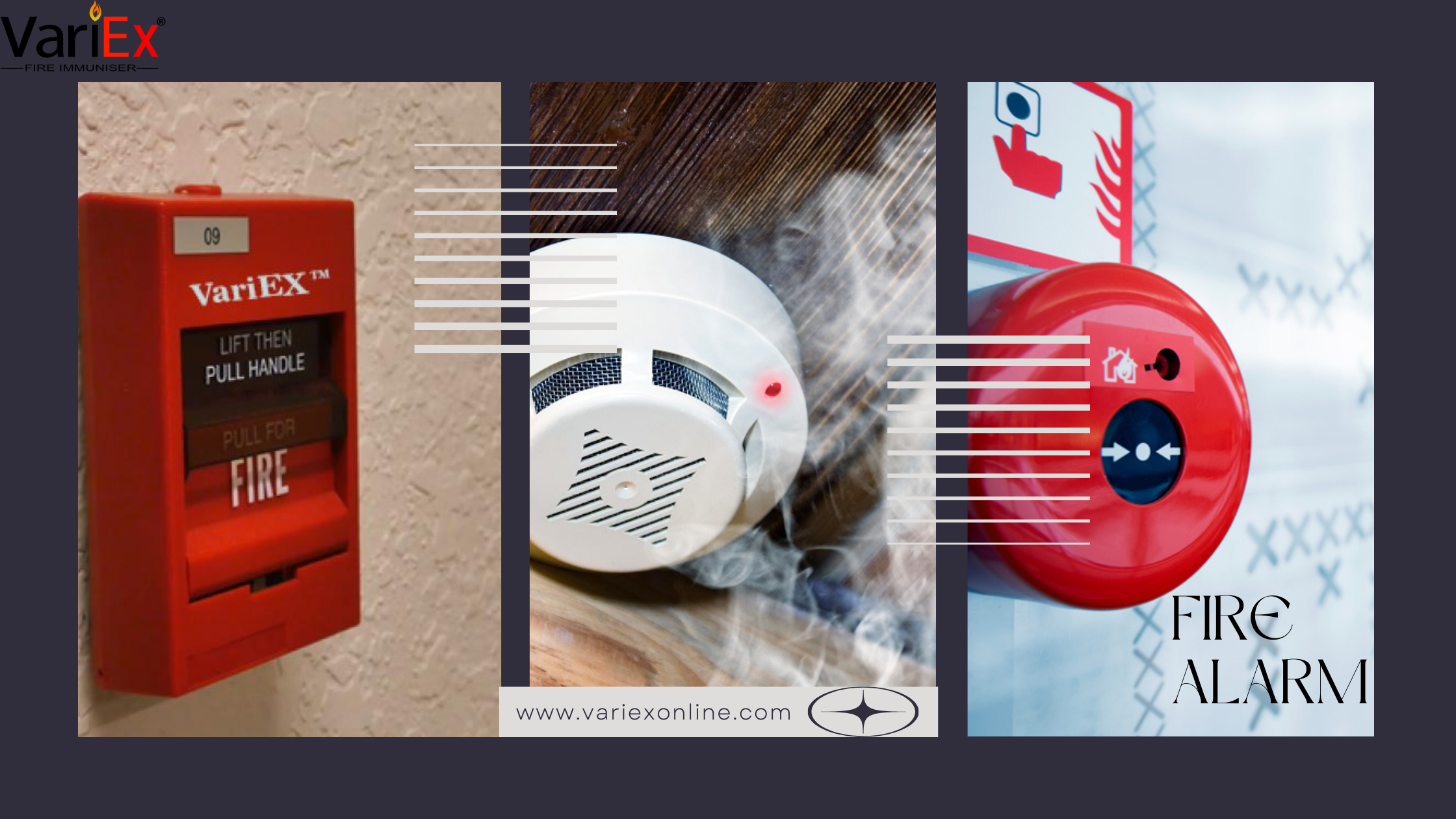![]()
Fire Immuniser
+91-7829629111
Email: info@variex.in
Varistor Technologies Pvt. Ltd.
Block-1, First Floor, Ardente Office One, Hoodi Circle, ITPL Main Road, Bengaluru, Karnataka 560048, IN
How Do Wireless Fire Alarm Systems Work
How Do Wireless Fire Alarm Systems Work
The importance of reliable fire alarm systems cannot be overstated. Traditional wired systems have served us well, offering dependable detection and warnings during emergencies. However, advancements in technology have brought an increasingly popular choice: wireless fire alarm systems. This article will explore how these systems work, their benefits, and what you need to consider when planning an installation.
Current Trends in Fire Alarm Systems
The fire alarm market is evolving with an emphasis on smart technology, sophisticated sensor technology, and remote access systems. There's a growing trend towards wireless fire alarm systems prompted by their flexibility, minimal installation disruption, and ease of maintenance.
What Are Wireless Fire Alarm Systems?
Wireless fire alarm systems, also known as radio frequency (RF) alarm systems, are designed to provide the same functionality as traditional wired systems. The primary difference is the method of communication. In a wireless fire alarm system, communication between the sensors, detectors, control panel, and notification devices is achieved via radio signals, eliminating the need for physical wire connections. Considering the increasing need for flexible and adaptive security measures, these systems have gained considerable traction in recent years.
Key Components of Wireless Fire Alarm Systems
Before discussing how they work, let's dissect a wireless fire alarm system. The three main components are:
- The initiating devices which include detectors like smoke detectors and heat detectors.
- The control panel, essentially the system's brain, where all signals are processed, and necessary actions are initiated.
- Notification devices, such as alarms and strobe lights, which alert occupants in the event of a fire.
Other components include transceivers used to convert signal types and boosters to amplify the radio signal when necessary.
How Do Wireless Fire Alarm Systems Work?
Wireless fire alarm systems function similarly to traditional wired systems, with the primary difference being their mode of communication. Here's a simplified explanation of how they work:
- Initiating devices installed throughout the building send a signal when they detect a possible fire—usually heat or smoke. These signals are transmitted via radio frequency waves.
- The control panel receives these signals. The communication between the initiating devices and the control panel is done wirelessly over a designated radio frequency reserved for security systems.
- The control panel processes the signal and, if a fire is confirmed, sends an activation signal to the notification devices.
- The alarms and other notification devices receive this signal wirelessly and implement the predetermined emergency procedure—usually sounding an alarm to alert the inhabitants.
This sequence of operations takes place within mere seconds, ensuring a rapid response to potential fires.
The Advantage of Wireless Fire Alarm Systems
There are several advantages to implementing wireless fire alarm systems. Their installation usually requires less time and causes less disruption, as there is no need to run wires between devices. This advantage is particularly significant in historic or architecturally sensitive buildings where intrusive installation is impractical or prohibited. Wireless systems can be easily expanded, adapted or moved according to changes in the building structure or use. They also require simpler maintenance, since there's no risk of physical damage to the wiring network.
Potential Challenges with Wireless Fire Alarm Systems
However, it's worth noting a few potential challenges with wireless fire alarm systems. They might suffer from signal interference caused by other electronic devices, which could result in false alarms or reduced operational range. To counter this, design considerations like appropriate placement of devices and choosing a system operating on a dedicated frequency spectrum are vital. Costs can also be higher due to the sophisticated technology and regular battery replacements needed for wireless devices.
Selecting a Wireless Fire Alarm System: Things to Consider
When selecting a wireless fire alarm system, one should note the system's reliability, resilience to possible interference, and battery life. Consider manufacturers with proven track records of reliable performance in environments similar to yours. It's also advisable to discuss your needs with a professional fire safety consultant or system integrator who can guide you in making the most suitable choice for your premises.
Conclusion
In conclusion, wireless fire alarm systems offer a modern and flexible alternative to traditional wired fire alarms. Their ease of installation and the flexibility they offer make them particularly suitable for complex building environments. However, they require careful planning and consideration during selection and installation, as factors like potential signal interference and the system's cost can impact their effectiveness and value. Whether you're updating your current system or installing a new one, having a clear understanding of how wireless fire alarm systems work will help you make an informed decision.
Final Say
At VariEx.in and VariexOnline.com, we specialize in supplying and installing top-quality fire fighting systems and equipment. From fire extinguishers to advanced suppression systems, we offer comprehensive solutions tailored to your needs. Our experienced team ensures precise installation and maintenance for optimal safety.
Trust VariEx for reliable fire protection. Contact us online or call 7829629111 to learn more.











